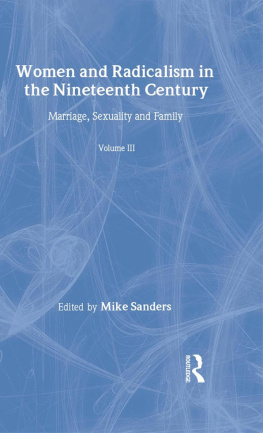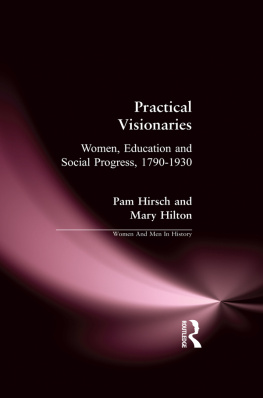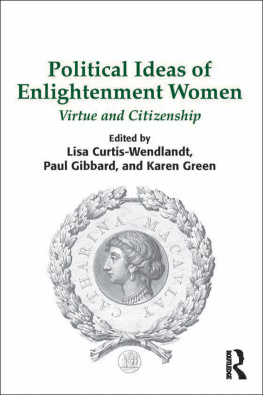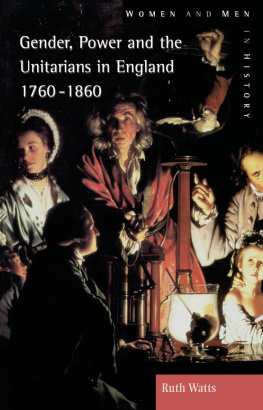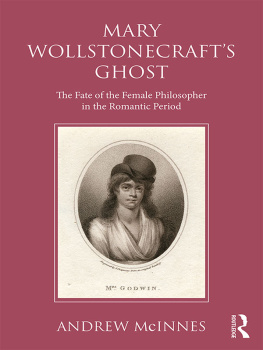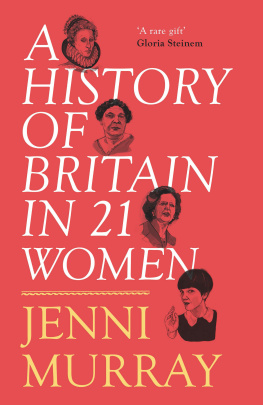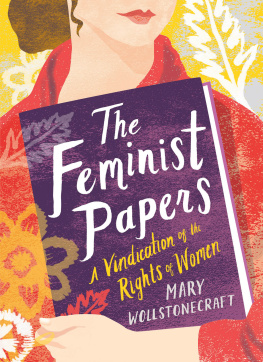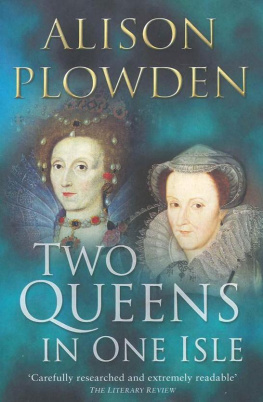WOMEN AND THE SHAPING OF THE NATIONS YOUNG
Ashgate Studies in Childhood, 1700 to the Present
Series Editor: Claudia Nelson, Texas A&M University
This series recognizes and supports innovative work on the child and on literature for children and adolescents that informs teaching and engages with current and emerging debates in the field. Proposals are welcome for interdisciplinary and comparative studeis by humanities scholars working in a variety of fields, including literature; book history, periodicals history, and prior culture and the sociology of texts; theater, film, musicology, and performance studies; history, including the history of education; gender studies; art history and visual culture; cultural studies; and religion.
Women and the Shaping of the Nations Young
Education and Public Doctrine in Britain 17501850
MARY HILTON
University of Cambridge, UK
First published 2007 by Ashgate Publishing
Published 2016 by Routledge
2 Park Square, Milton Park, Abingdon, Oxon OX14 4RN
711 Third Avenue, New York, NY 10017, USA
Routledge is an imprint of the Taylor & Francis Group, an informa business
Copyright Mary Hilton 2007
Mary Hilton has asserted her moral right under the Copyright, Designs and Patents Act, 1988, to be identified as the author of this work.
All rights reserved. No part of this book may be reprinted or reproduced or utilised in any form or by any electronic, mechanical, or other means, now known or hereafter invented, including photocopying and recording, or in any information storage or retrieval system, without permission in writing from the publishers.
Notice:
Product or corporate names may be trademarks or registered trademarks, and are used only for identification and explanation without intent to infringe.
British Library Cataloguing in Publication Data
Hilton, Mary, 1946-
Women and the shaping of the nations young : education and public doctrine in Britain, 17501850. - (Ashgate studies in childhood, 1700 to the present)
1. Women educators Great Britain History 18th century 2. Women educators Great Britain History 19th century 3. Education Philosophy History 18th century 4. Education Philosophy History 19th century 5. Women in education Great Britain History 18th century 6. Women in education Great Britain History 19th century
I. Title
370.820941
Library of Congress Cataloging-in-Publication Data
Hilton, Mary, 1946-
Women and the shaping of the nations young : education and public doctrine in Britain, 17501850 / by Mary Hilton.
p. cm. (Ashgate studies in childhood, 1700 to the present)
Includes bibliographical references.
ISBN 978-0-7546-5790-3 (alk. paper)
1. Moral educationGreat BritainHistory18th century. 2. Moral educationGreat BritainHistory19th century. 3. Women in educationGreat BritainHistory 18th century. 4. Women in educationGreat BritainHistory19th century. I. Title.
LC314.G7H55 2007
370.114094109033dc22
2006032445
ISBN: 978-0-7546-5790-3 (hbk)
To Boyd, Tom, Eliza, Zo,
and
in memory of my parents
William and Joan Beckett
Contents
Over the ten years it has taken me to write this book I have become indebted to many people who have given me intellectual stimulus and support. At the very beginning two valued friends, Margaret Pelling and Morag Styles, helped me in different ways to have enough self-belief to get going and I remain deeply grateful to both of them for that and for their continuing encouragement ever since. Gillian Sutherland read a very early draft and gave me some valuable critical advice that helped set my direction. The members of the Homerton College Primary English team have provided lasting friendships and a wonderful example of committed women educationalists involved in passionate debates of principle and practicalities over the years. I hope they see this work as a small tribute to our arguments and interconnectedness.
I have gained many insights from conversations with historians and teacher friends. Here I can only thank some of them: Lyudmyla Beckett, Suzy and Humfrey Butters, Jane Chudleigh, Mary Jane Drummond, Graham Else, Merran Evans, Marilyn Farquharson, Heather Glen, Joyce Goodman, the late Alice Hehir, Pam Hirsch, Carol Jones, Sue Matthew, the late Colin Matthew, Sue McCarthy, Ross McKibbin, Pablo Mukherjee, Michael Murphy, Caroline Napper, Rolf Purvis, Alison Quinlan, Jill Shefrin, Renata Singer, Hilary Spanos, Claire Vout, Allen Warren, Victor Watson, Gill and Geoff Williams.
To three close colleagues who have been particularly involved with the writing and thinking I owe special thanks. Frances Smith read, commented upon, and corrected several draft chapters. Isobel Urquhart has patiently and supportively listened to my arguments and ideas over and over again. David Whitley has had scrappy drafts and incoherent chapters thrust at him over a period of ten years and has always responded with his own brand of insightful, gently astringent, critical help.
In the final stages I have been greatly assisted by William St Clair and Michle Cohen, both of whom read their way through an overlong manuscript version, and gave wise advice on how to pull it all together. Michle has stayed a much-needed interlocutor on the whole question of women and education in the period. Claudia Nelson and the unknown reader at Ashgate helped me make important improvements, while Ruth Williams has supplied calm, efficient, and very kind help in editing and formatting.
In my family, education of all varieties has always been considered the womens responsibility, full of controversy and creativity. My mother and my two grandmothers all provided exceptionally imaginative and opinionated role models, the memory of whom has sustained me throughout. To Boyd is my greatest debt. In the way of long-married couples his love of that country the past has unconsciously become a shared project, although it will come as no surprise to our friends that we dont always agree. Our children Tom, Eliza and Zo have helped by changing, challenging, and more often blithely ignoring the educational ideas and schemes thought up by their parents. This work is dedicated to my family in fond apprectiation of our mutual educational ventures over the years.
Night, Gothic night, again may shade the plains
Where Power is seated, and where Science reigns;
England, the seat of arts, be only known
By the grey ruin and the mouldering stone;
That Time may tear the garland from her brow,
And Europe sit in dust as Asia now.
From Anna Laetitia Barbaulds poem, Eighteen Hundred and Eleven1
When Anna Laetitia Barbaulds poem was first published in 1812, it provoked some harsh criticism. An apocalyptic prophecy set in heroic couplets which imagined the crushing of Britain under Napoleon and the rise of America, the poem and its writer were assailed for a lack of patriotic feeling at a time when Britain was at war with France and America.2 The poem was denounced as unkind and unpatriotic and the product of a peculiarly frigid temperament in The Eclectic Review, while The Universal Magazine complained of its cold regularity and frigid observance of what is right.3 Even her friend Henry Crabb Robinson felt the same. At this time dear Mrs Barbauld incurred great reproach by writing 1811There was a disheartening and even dastardly tone in it which even I with all my love for her could not excuse, he wrote in his journal.4 The most hostile critic of all was John Wilson Croker of the


